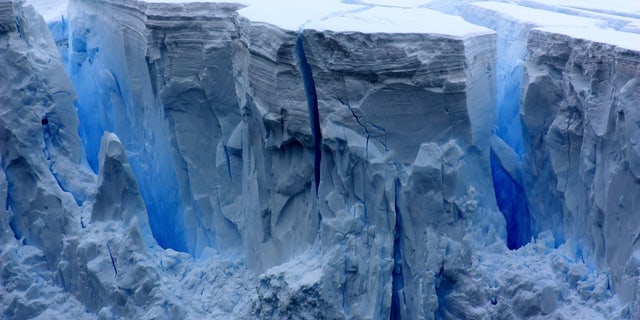
Texas Energy Aggregation announced the formation of the Texas Power Pool, a new power purchasing option for
Texas public entities to utilize aggregated renewable energy. Texas Power Pool services include competitive procurement of utility-scale renewables and on-site solar for state agencies, higher education, cities, independent school districts, water districts, and other public entities across
Texas, including cooperative and municipal utility regions. The services are enabled by a Texas Comptroller’s Statewide Procurement Division contract awarded to Texas Energy Aggregation. Interested public entities can learn more from the
State Energy Conservation Office (SECO).
Public entities have been slow to take advantage of renewables’ financial value
Corporate energy users in Texas like Dow Chemical, Exxon-Mobil, Shell, and large municipal entities like the City of Houston have been procuring wholesale renewable wind and solar to reduce costs, hedge against energy price volatility, and achieve sustainability goals. According to the Business Renewables Center, 2018 was by far the most prolific year yet for corporate renewable deals. Public entities such as cities, schools and universities certainly have an increasing appetite for renewables, but have been slow to cash in on the green energy boom, often lacking the expertise or economy of scale to achieve a price below traditional grid power.
With projected rates below three cents per kilowatt-hour, competitively procured wholesale renewables are the lowest-cost purchasing option available in more than a decade. In sharp contrast, many retail energy contracts offer a “100% renewable” alternative at a higher cost by simply purchasing Renewable Energy Credits (RECs). “Faced with budget shortfalls, public entities are now aggressively seeking new ways to reduce costs,” says Texas Energy Aggregation President, TJ Ermoian.
Texas Comptroller’s Office supports strategic power procurement
The Texas Comptroller’s Statewide Procurement Division is the central state organization for purchasing and, with the assistance of SECO, issued a request for proposals for electricity sourcing services that included renewable power purchase agreements. Through a competitive bidding process, the Comptroller’s office selected the
Waco-based
Texas Energy Aggregation to offer electricity procurement services. SECO was later involved with Texas Energy Aggregation in naming these services the Texas Power Pool. Texas Energy Aggregation is an electricity consulting firm working in partnership with the non-profit Rocky Mountain Institute (RMI), which seeks to accelerate the global transition to clean energy use and is providing technical and convening assistance.
“Power purchasing in Texas has changed, but not so much for public entities,” explains Ermoian. “Wind and solar are the new disruptors to the energy industry, offering the lowest-priced generation, but it takes specialized experience and aggregated loads to achieve the scale necessary to get below three cents per kilowatt-hour. We are exceptionally fortunate to have the help and support of SECO and RMI.”
“Solar energy offers a compelling value proposition to consumers in Texas, and across the country,” Kevin Brehm, a manager at RMI, states. “Aided by increasingly favorable economics, this clean, reliable, renewable resource can provide compelling monetary, environmental, and grid benefits to a wide range of buyers. We are pleased to partner with Texas Energy Aggregation to expand the market for solar energy and provide these services to a greater number of Texans.”
Business-as-usual has been costing taxpayers millions
When Texas chose a competitive electricity market in 2002, many public entities selected an approved purchasing program to help them navigate their first energy contracts. Many have continued to utilize the same program without shopping other options. Loyal customers are often shocked to learn that some of the most widely-utilized programs do not competitively bid for energy retailers or wholesale energy supply for best pricing. Programs have also failed to offer competitive renewables procurement.
Lack of competition and transparency were two
reasons targeted by the legislature (start at 2:02:20) that customers may be overpaying. Some contracts still demand complete confidentiality and prohibit users from divulging fees, contract terms, and rates, and even instruct customers on how to fend off Freedom of Information requests. Ermoian asks, “If they offer such great rates, one would want to crow about their successes, right? Competition is good. These are often multi-year, multi-million-dollar contracts with no transparency.
Texas taxpayers deserve to know if they are getting the best deal.”
The Texas Power Pool addresses the shortcomings of widely-utilized energy purchasing programs
Texas Energy Aggregation has represented over 100 municipal customers, been awarded five separate interlocal electricity purchasing agreements, advanced consumer protections, and won two national awards. Ermoian is especially passionate about schools and their budgets, asserting, “Many in my family are educators, and I understand the financial sacrifices they make for their passion and calling. Truly competitive energy purchasing will help keep more dollars in our schools.”
Mike Bendewald, Chief Operating Officer with Texas Energy Aggregation, served over 9 years at RMI where he managed a grant to procure community-scale solar for public entities in Texas. He now manages the Texas Power Pool, leading customer engagement and contract structuring. Texas Energy Aggregation’s consultant, Dan Seif, also came to Texas from RMI after co-founding RMI’s Business Renewables Center. More than 90% of the utility-scale renewable power purchase agreements negotiated nationwide over the last few years have been obtained by members of the Business Renewables Center.
“There is a short window of opportunity in the market to capitalize upon federal renewable energy tax credits which begin ramping down in 2020,” affirms Bendewald. Texas Energy has begun the process of collecting letters of interest from the largest state and other public entities, which already includes some of the largest state agencies, cities and schools. These non-binding endorsements of common goals will be used to release a request for proposal by the end of first quarter 2019 to lock in a firm price. “Once we can guarantee a rate under 3 cents per kilowatt-hour, we anticipate additional participation that will further drive down the cost for all participants,” Bendewald explains.
Participants with existing energy contracts as far out as 2028 may qualify for additional rate discounts or upfront cash bonuses. This does not cancel or affect an entity’s existing contract in any way. Bendewald summarizes, “Current market conditions, technology and tax credits are making unheard-of opportunities available to public entities. Any entity seeking long-term budget certainty, lowest price, or sustainability goals should sign a letter of interest as quickly as possible to get these deals booked in 2019.”





